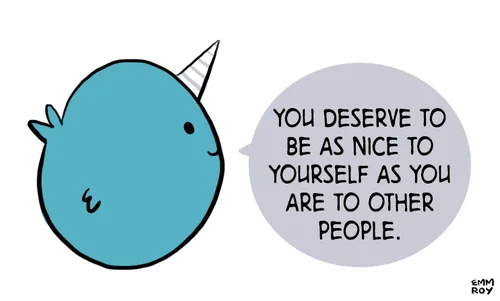Campaigning for human rights can be really tough, which is why Amnesty activists need to pay attention to their self care and well being.
People are activists with Amnesty because they care deeply about people and want to create a world where everybody’s human rights are protected.

Need to talk to someone?
Amnesty provides access to a counselling service (EAP) for activists call 1300 364 273 or visit their website to make an appointment on the phone or in person. If you or another person is in crisis call Lifeline on 13 11 14 available 24 hours a day or 000.
This can be a great motivator but can also put activists in a place where they’re exposed to humans rights abuses or where their deep drive to change the world impacts their mental health. Burnout and vicarious trauma happen all the time in the activist world and it’s important to keep a look out for the signs in yourself and your friends.
What is burnout?
Burnout relates to the amount of emotional and psychological resilience you have.
It’s not a yes or no, but a scale. You can try and do an assessment on whether or not you’re burning out by asking yourself some reflective questions.
What are the signs of burnout?
Everyone’s different and people who are burnout may have some or all of these symptoms:

- Anxiety
- Guilt
- Isolation
- Irritability
- Anger
- Sadness
- Pessimism
- Disappointment
- Numbness
- Fatigue/insomnia
- Lack of motivation
- Physical pain/sickness
- Compassion fatigue
You can distinguish burnout from bad days if you find that a) it’s persistent over time, b) you experience it in more than one situation, and/or c) if it’s a change from how you used to feel in similar situations. If you’re unsure how you rate you can do a short self assessment on page 6 of this guide.
Your self-care toolbox
Take some time out
Have a rest from the activism that is adding extra pressure. Sometimes this is all you need.
Do thing that you love
Reconnecting with the hobbies and activities you enjoy can help remind you that there are good things in the world.
Healthy body, healthy mind
Eat healthy foods, exercise and try and get enough sleep. This one is pretty obvious but is still very important.
Spend time with the people you love
Spending time with your support networks and talking about how you’re feeling helps to reduce feelings of isolation and connectedness with others.
Challenge your brain
Learning a new skill can help distract you from your worries, challenge you in a different way and build a sense of accomplishment.
Investing in yourself is investing in your activism
Sometimes people feel guilty taking time out to do the things in their self-care box. While it can be hard, it’s important to remember that you can’t effectively care for others if you’re not okay.
Different things work for different people, but if you’re planning on a long life of activism then building up a coping bank will help you stay effective and in the game for a long time.
More Resources:
Download some copies of this self-care guide which includes a burn out checklist yourself and members of your group.




